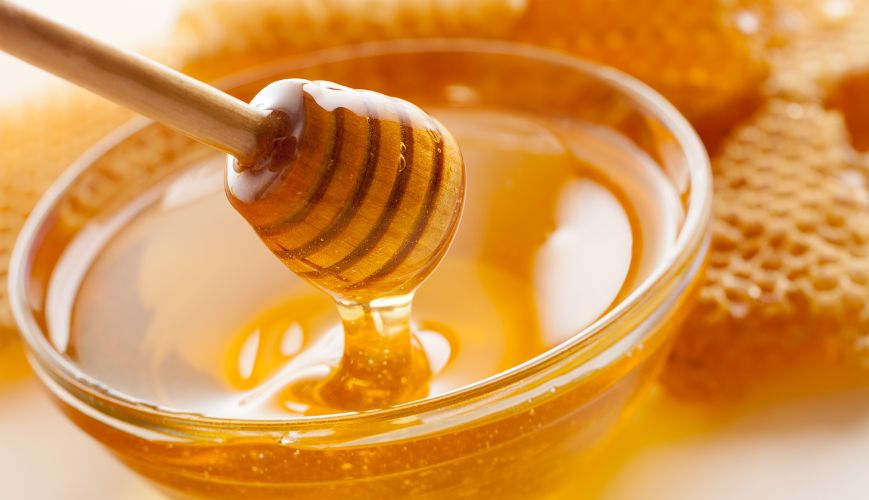The global honey market, valued at approximately 9.77 billion USD in 2023, is projected to grow at a steady CAGR of 4.62% from 2024 to 2032. By 2032, it is expected to reach a volume of 14.66 billion USD. This growth trajectory reflects increasing consumer preference for natural sweeteners and the rising awareness regarding the health benefits associated with honey consumption.
Honey Market Dynamics
The honey market is driven by growing consumer demand for natural and organic products, fueled by health-conscious lifestyles. Additionally, the versatility of honey in culinary applications and its use in various industries such as food and beverages, pharmaceuticals, and personal care contributes to market expansion.
Honey Market Trends
Recent trends in the honey market include the rising popularity of raw and organic honey variants, driven by increasing awareness about sustainable farming practices and environmental concerns. Moreover, the demand for honey as a key ingredient in natural skincare products has witnessed significant growth.
Honey Market Segmentation
By Type:
- Raw Honey: Unprocessed honey that retains natural enzymes and antioxidants. It is favored for its superior nutritional value and health benefits.
- Processed Honey: Filtered and heated to remove impurities and improve shelf life. Processed honey may include pasteurized or ultra-filtered variants.
By Application:
- Food & Beverages: Used as a natural sweetener in various food products such as bakery goods, cereals, and beverages like teas and juices.
- Pharmaceuticals: Honey is utilized in medicinal products, cough syrups, wound dressings, and health supplements due to its antibacterial and healing properties.
- Personal Care & Cosmetics: Found in skincare products like creams, lotions, and masks for its moisturizing, antibacterial, and anti-inflammatory properties.
By Distribution Channel:
- Direct Sales: Sales directly from beekeepers or honey producers to consumers or retailers.
- Retail Sales: Honey available in supermarkets, hypermarkets, specialty stores, and convenience stores.
- Online Sales: Increasingly popular due to convenience and accessibility, offering a wide range of honey products to global consumers.
By Geography:
- North America: Significant market driven by increasing consumer awareness of health benefits and preference for natural sweeteners.
- Europe: Growing demand for organic and premium honey products, driven by health-conscious consumers.
- Asia Pacific: Rapid urbanization, changing dietary habits, and traditional use of honey in Ayurvedic and traditional medicines fuel market growth.
- Latin America: Increasing adoption of honey in food and beverage industries, alongside growing export opportunities for organic honey.
- Middle East & Africa: Rising popularity of honey due to its cultural significance and increasing health awareness among consumers.
Honey Market Growth
The market growth is propelled by expanding urbanization, rising disposable incomes, and the growing adoption of honey as a natural sweetener and health supplement globally.
Get a Free Sample Report with Table of Contents
Recent Developments in the Honey Market Scope
Recent developments include advancements in honey harvesting technologies, sustainable beekeeping practices, and innovative packaging solutions to enhance shelf life and preserve honey's natural properties.
Honey Market Analysis and Competitor Analysis
Key players in the honey market include Barkman Honey, LLC, Dabur India Ltd, Capilano Honey Limited, African Bronze Honey Company, New Zealand Honey Co., Pastili Limited, Comvita Ltd., North Dallas Honey Company d/b/a Nature Nate, Streamland Honey Group Ltd, Dutch Gold Honey, Inc., among others. These companies compete based on product quality, pricing strategies, distribution networks, and brand loyalty.
Key Players
- Barkman Honey, LLC
- Dabur India Ltd
- Capilano Honey Limited
- African Bronze Honey Company
- New Zealand Honey Co.
- Pastili Limited
- Comvita Ltd.
- North Dallas Honey Company d/b/a Nature Nate
- Streamland Honey Group Ltd,
- Dutch Gold Honey, Inc.
- Others
FAQs
- What are the health benefits of honey?
- Honey is known for its antioxidant properties, which help neutralize free radicals in the body. It also has antibacterial properties and may aid in wound healing. Honey is often used to soothe sore throats and coughs and is a natural energy booster due to its carbohydrate content.
- How is honey graded?
- Honey grading involves assessing several factors, including moisture content, color, flavor intensity, and absence of impurities. Different countries may have specific grading standards, such as USDA grades in the United States or Mānuka Honey Unique Manuka Factor (UMF) grading in New Zealand.
- What is raw honey?
- Raw honey is unprocessed and unfiltered honey straight from the hive. It retains natural enzymes, pollen, and antioxidants that are often lost in processed honey. Raw honey is valued for its superior nutritional content and potential health benefits.
- What is Manuka honey?
- Manuka honey is a type of honey produced predominantly in New Zealand and parts of Australia. It comes from the nectar of the Manuka tree (Leptospermum scoparium) and is known for its unique antibacterial properties due to high levels of methylglyoxal (MGO). Manuka honey is graded using the UMF (Unique Manuka Factor) rating system, which measures its antibacterial potency.
- How should honey be stored?
- Honey should be stored in a tightly sealed container at room temperature (around 70°F or 21°C). Avoid storing honey in the refrigerator, as it can promote crystallization. Keep honey away from direct sunlight and moisture to maintain its quality.
- Is honey suitable for everyone?
- While honey is generally safe for consumption, it is not recommended for infants under the age of one year due to the risk of infant botulism. People with pollen allergies should exercise caution when consuming honey, as it may contain pollen traces.
- How can I use honey besides as a sweetener?
- Honey is versatile and can be used beyond sweetening beverages and foods. It can be used as a natural face mask ingredient for moisturizing and antibacterial benefits, added to hair treatments for shine and conditioning, or incorporated into homemade body scrubs for exfoliation.
- What are some sustainable practices in honey production?
- Sustainable honey production focuses on responsible beekeeping practices that prioritize bee health and environmental conservation. This includes promoting biodiversity, minimizing pesticide use, supporting local ecosystems, and ensuring fair trade practices with beekeepers.

